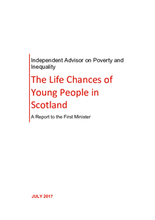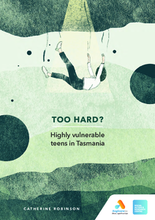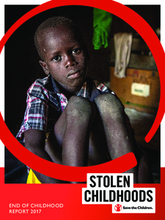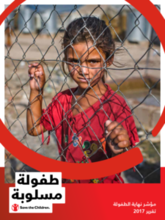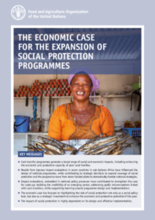Displaying 271 - 280 of 505
This report offers 18 recommendations across the key themes of employment, housing and mental health, aimed at improving outcomes for young people from less advantaged backgrounds in Scotland.
This report presents the findings of an investigation on a cohort of highly vulnerable teens (aged 10-17 years) whose needs for care have fallen outside families, between government agencies and between non-government services. The report identifies the gaps in care received by this cohort and offers key recommendations for how these gaps might be filled.
The 2017 Home Visiting Yearbook presents, for the first time, the most comprehensive picture available of home visiting on the national and state levels, revealing the breadth of home visiting in the United States and identifying the gaps in practice.
This article is an historical analysis of the association between interventions for neglect and attitudes to poverty in English speaking countries, with reference to specific countries by way of illustration.
This article examines the impact of poverty on looked-after children and their families, describes and evaluates the use of multiple family group therapy and other family-based interventions, and reports children's experiences and feedback from the groups.
This paper reports the findings of an Australian study that examined longitudinal data on reasons for entry to care, trajectories in care and patterns of reunification and associated factors.
This paper reports the findings from an Australian study that examined longitudinal data on reasons for entry to care, trajectories in care and patterns of reunification and associated factors.
Every child deserves a childhood of love, care and protection so they can develop to their full potential, but this is not the experience for at least a quarter of our children worldwide. This new report – the first in an annual series – takes a hard look at the events that rob children of their childhoods.
Every child deserves a childhood of love, care and protection so they can develop to their full potential, but this is not the experience for at least a quarter of our children worldwide. This new report – the first in an annual series – takes a hard look at the events that rob children of their childhoods.
This brief brings together the critical mass of evidence emerging from recent rigorous impact evaluations of government-run cash transfer programmes in seven countries in sub-Saharan Africa.

